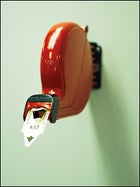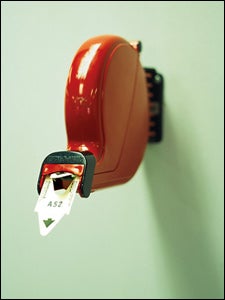POMONA COLLEGE, junior year: A head-high September south swell had rolled into Southern California. But rather than paddling into glassy peelers at San Onofre State Beacha classic SoCal surf spot an hour from schoolwe were idling behind several dozen other cars at the gatehouse, waiting to get in. Too many people, not enough beach, and the park’s chosen method for determining access was one car out, one car in. So we waited, fumed, and thought there had to be a better way.
The Little Idea
���ϳԹ��� Lotteries Worth Entering1. Running the New York City Marathon, New York ()
2. Racing in the Ironman Triathlon World Championships,C
Some Economists View lotteries as a taxation on stupidity
 Some economists view lotteries as “a taxation on stupidity”
Some economists view lotteries as “a taxation on stupidity”Lately, it seems, most state and federal agenciesand many private ones, toohave hit on the same solution to growing populations and shrinking everything else: the lottery. The Grand Canyon was the big one. The wait had swelled to 25 years when the National Park Service switched from a queue to a weighted lottery in 2006. “We had people putting their babies on the list,” says the park’s permit-program manager, Steve Sullivan. But the Big Ditch isn’t the only hot ticket. If you’ve entered the Leadville Trail 100, climbed mounts Whitney or Rainier, hunted an elk in a prime area like New Mexico’s Valles Caldera National Preserve, or run the New York City Marathon, chances are good you’ve entered a lottery.
Problem solved, right? Not so fast. The same drawbacks that taint state-run scratcher tickets also apply to these egalitarian efforts. “Economists view lotteries as a taxation on stupidity,” says Dan Ariely, author of Predictably Irrational and a professor of psychology and behavioral economics at Duke University, “because the expected value is not very high.” People overestimate the chance of winning a big prize because the entry fee seems small in comparison with the potential payoff, even though the odds are smaller still. “People are willing to pay too much,” says Ariely. In the case of the Canyon ($25 per entry) and the Valles Caldera ($30 per ticket), the parks collect the revenue from the thousands of entries purchased per permit actually issued. For most people, the convenience of not waiting outweighs the lottery’s nothing-for-somethingness, but that’s not the biggest problem.
Many permit and entry lotteries are free until you win. But the side effect of a no-cost lottery is that more people will enter, making the odds even worse. It’s just that, subconsciously, we don’t believe it. Until two years ago, the New York Road Runners Club, which hosts the city’s marathon (43,000 people finished last year, of the 109,000 who applied), allowed entry to its spring half-marathon on a first-come basis. Now it’s on a lottery system. So which do people prefer? “Most people like the lottery, because it improves your chances of getting in,” says NYRR’s Meghan Chisholm. And that’s just it: Lotteries seem more fair, when in fact you’re statistically less likely to win your permit or race entry.
But, as Ariely says, “why should everybody get an equal chance?” And, in fact, many lottery wonks do attempt to invent a version of fairness that seems appropriate to the game at hand. The Grand Canyon system favors people who haven’t made the trip already, and it doesn’t allow anyone (guides excluded) to float more than once per year. The Road Runners Club guarantees entry to anyone who’s been skunked three years in a row and allows sub-2:55 marathon runners (sub-3:23 for women) and anyone who runs in nine of the organization’s qualifying events and volunteers for another to bypass the lottery.
On the other hand, creating loopholes for experts and novices, old and young, locals and nonlocals, leaves out one very important group: the fanatics. I’m not saying we need to ditch the lottery concept. (“A waiting list just guarantees that you’re going to wait,” Sullivan says.) But as a matter of principle, let’s carve off a few tickets for the superfans among us who are willing to wait in line. No, not wait at their computers, ready to submit their credit-card info, but ready to camp out on a cold sidewalk to claim what they clearly want (need!) more than anyone else who casually enters a lottery, indifferent to the outcome.
On that clear fall morning in San Clemente, we roosted as cars of sated surfers gradually trickled out. Mostly, though, we outlasted the people in line ahead of us who gave up, pulled U-turns, and went back to work. When we finally got in, the surf was that much sweeter.


